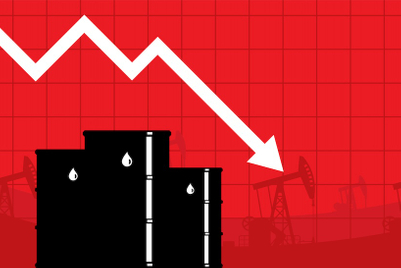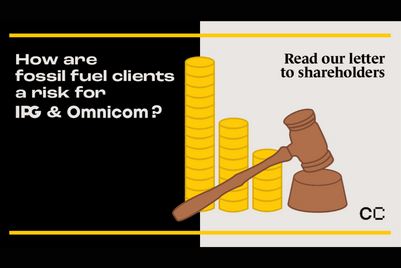
The marketing communications industry activist group Clean Creatives has produced its first Asia-focused F-list of fossil fuel client contracts with PR and advertising agencies in the region, building off its most recent global list released last month.
The research lists 103 contracts from 72 agencies in Asia from 2022 to 2023, of which WPP has 22, the most of any holding company company, followed by IPG which has nine. 42 independent agencies are also on the list, led by Indonesian PR firm Kiroyan Partners with nine contracts, the most of any single agency.
These contracts were split roughly evenly between national or regional oil and gas companies (56%) and global multinationals (44%).
The Asia study involved 10 different markets, led by Indonesia with 15 contracts, followed next by India (11), Thailand (9), Japan (8), Singapore (6), Philippines (6), Malaysia (5), Korea (4), Vietnam (2) and Hong Kong (2). Clean Creatives chose not to include Mainland China, citing its unique corporate ownership structures and differences in media transparency.

Clean Creatives says it released the Asia-focused study as the region is not only especially vulnerable to climate change effects, but it has also become the world's fastest growing region for fossil fuel production and consumption, with its global greenhouse gas emissions contribution doubling between 1990 and 2019 from 22% to 44%.
The report takes aim at the role in marketing communications in fueling that consumption, citing examples of retail gasoline loyalty programmes and lucky draws for automobiles that encourage regular fill-ups. Hill+Knowlton Strategies' involvement in Shell's 130th Anniversary Mega Lucky Draw in Thailand is criticised for giving away vehicles and fuel gift cards to customers who purchase more fuel in a limited time period.

VMLY&R's work with Caltex (Chevron) on its Liter Lottery in the Philippines also draws attention for giving customers free tanks of gas when the last digit of the meter matched the last digit of their license plate, resulting in a 233% rise in full tank purchases and boosted sales by 198%.
Examples of purpose-washing and green washing called out by Clean Creatives include: India's Adani Electricity's 'I Can' campaign that puts the onus on reducing pollution on consumers; Pertamina's EcoRun Fest in Indonesia with the help of Kiroyan Partners that purports to support an clean energy event initiative for local villages but requires a fuel purchase to attend; and Caltex's Def Jam South East Asia event with VMLY&R that infuses catch rap tunes with nudges to fill up one's tank.
"Asia has a complicated relationship with fossil fuels," says Clean Creatives research director Nayantara Dutta. "The oil and gas industry has created growth and opportunity for many people while, at the same time, putting the most climate-vulnerable region at deeper risk. In Asia, fossil fuel campaigns can be especially insidious and manipulative, leading to miseducation and making people believe that climate change is their personal responsibility."
For the full Asia F-List report, click here.


.jpg&h=334&w=500&q=100&v=20250320&c=1)
.jpg&h=334&w=500&q=100&v=20250320&c=1)
.jpg&h=334&w=500&q=100&v=20250320&c=1)


.png&h=334&w=500&q=100&v=20250320&c=1)
.png&h=334&w=500&q=100&v=20250320&c=1)










.png&h=268&w=401&q=100&v=20250320&c=1)